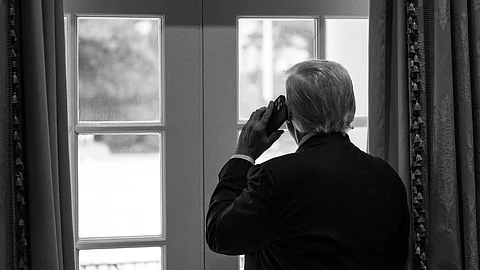

The Swiss government, reeling from U.S. President Donald Trump’s unexpected 39% tariff on its exports, convened a crisis meeting on Monday to strategize a response.
The Federal Council expressed determination to pursue negotiations with Washington, signaling readiness to present a “more attractive offer” to mitigate the tariff’s impact.
Set to take effect on August 7, the tariff targets Switzerland’s key exports, including watches, machinery, and chocolates, threatening significant economic disruption.
Switzerland, a nation heavily reliant on exports, faces one of the highest U.S. tariff rates globally, surpassed only by Laos, Myanmar, and Syria.
Industry leaders warn that the 39% levy could jeopardize tens of thousands of jobs, with potential economic contraction estimated at 0.3% to 0.6% of GDP.
The Swiss stock market reflected these concerns, dropping 1.8% on Monday, the first trading day after the tariff announcement coincided with Swiss National Day.
Trump’s focus on the $48 billion U.S. trade deficit with Switzerland in 2024 has driven the tariff decision, despite Switzerland’s near duty-free access for U.S. goods.
Swiss Business Minister Guy Parmelin suggested options like purchasing U.S. liquefied natural gas or increasing Swiss investments in the U.S. to address these concerns.
With a tight deadline looming, Swiss officials, including Parmelin and President Karin Keller-Sutter, are prepared to travel to Washington to secure a better deal.